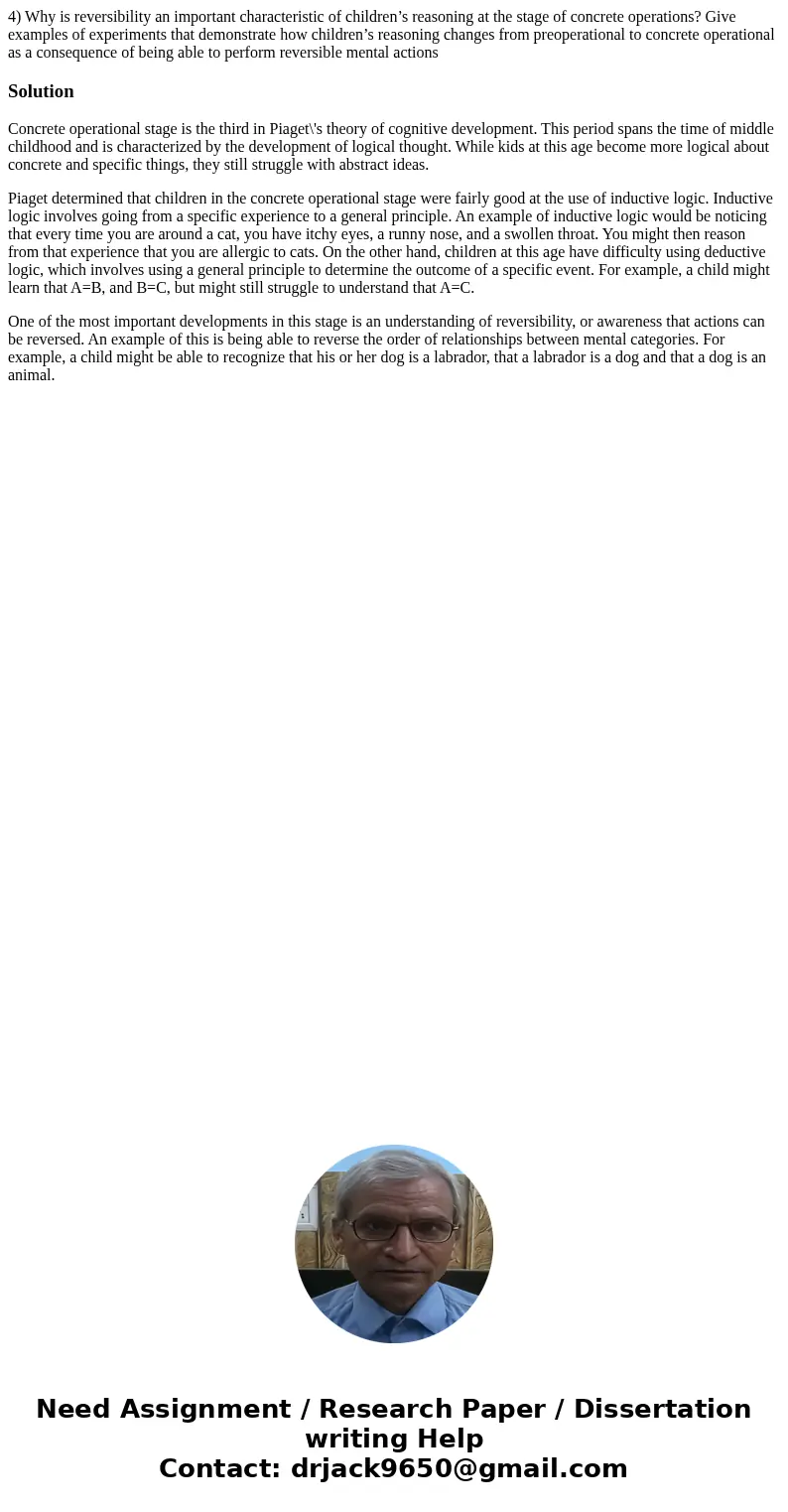4 Why is reversibility an important characteristic of childr
4) Why is reversibility an important characteristic of children’s reasoning at the stage of concrete operations? Give examples of experiments that demonstrate how children’s reasoning changes from preoperational to concrete operational as a consequence of being able to perform reversible mental actions
Solution
Concrete operational stage is the third in Piaget\'s theory of cognitive development. This period spans the time of middle childhood and is characterized by the development of logical thought. While kids at this age become more logical about concrete and specific things, they still struggle with abstract ideas.
Piaget determined that children in the concrete operational stage were fairly good at the use of inductive logic. Inductive logic involves going from a specific experience to a general principle. An example of inductive logic would be noticing that every time you are around a cat, you have itchy eyes, a runny nose, and a swollen throat. You might then reason from that experience that you are allergic to cats. On the other hand, children at this age have difficulty using deductive logic, which involves using a general principle to determine the outcome of a specific event. For example, a child might learn that A=B, and B=C, but might still struggle to understand that A=C.
One of the most important developments in this stage is an understanding of reversibility, or awareness that actions can be reversed. An example of this is being able to reverse the order of relationships between mental categories. For example, a child might be able to recognize that his or her dog is a labrador, that a labrador is a dog and that a dog is an animal.

 Homework Sourse
Homework Sourse